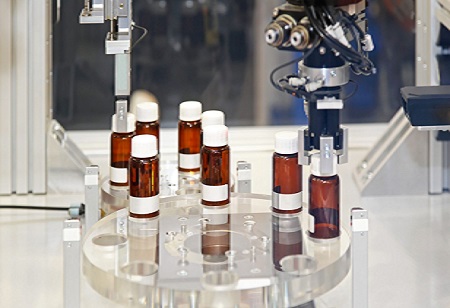Janifha Evangeline | Saturday, 30 July 2022

One of the sophisticated, as well as elegant achievements of modern science, is biopharmaceuticals. The complex structures of these drugs look extraordinary in 3D systems. The industry is anticipated to reach USD 534.19 billion by 2027. The Biopharma sector will be forced to confront similar challenges faced by other businesses, increasingly as it shifts from the scientific frontier to the business mainstream by maintaining competitiveness and ensuring quality, affordability, quality as well as delivery performance.
The surge in demand for affordability & improved access As healthcare systems struggle to balance the surge in demand with budgets that are declining, the downward cost pressure will intensify and in such an environment, it may be difficult for payors to justify the annual treatment costs of USD 50000 to 100000 which some of the biopharma products demand, currently. However, it is not easy to imagine these price premiums would be sustainable for the most innovative drugs.
Moreover, governments in developing nations understand the crucial role of biopharma in boosting healthcare outcomes. Therefore, they are supporting alternative ways, aggressively in order to fulfill the demand for these products.
The inevitable development of the biosimilars industry will be owing to these pressures and the availability of biosimilar versions of interferons as well as human-growth hormones has enabled access to these products for a huge number of patients. Biosimilars will follow a similar path as patent protection on more complex biopharmaceuticals expires. Although the early regulatory & consumer concern is already being overcome, enthusiasm for biosimilars is set to become even stronger in developing nations, and this would occur only if consumers have the access to products only if they are available at affordable or lower prices.
The biosimilars industry has the capacity to transform the commercial sector similar to how generic players have performed in conventional pharma. Furthermore, pressure from biosimilars would be forcing the innovators to augment the search for better products & will lead to a rise in pressure on the biopharma industry in order to reduce the cost of products being sold.
Wockhardt – is a global biotechnology and pharmaceutical company that offers affordable as well as high-quality medicines for a healthier world. Biopharma supply chain & operations complexities The complexity of operations & the biopharma supply chain will go
high as the number of products increases & new process technologies like continuous manufacturing are introduced into the market. Evidence shows that the present production programs are leading and supporting the expansion of the industry, with numerous players who are failing to provide the products to the market and this challenge will only go high as sites shift from the present “one line, one product,” setup to flexible multiple-product operations that are needed for managing both the present technologies as well as the future technologies under a single roof.
What has resulted in the industry-wide challenges in the supply chain is the high premium of biopharmaceutical products coupled with the smaller share of revenues that they have accounted for in big pharmaceutical companies, historically. While considering the complexity of cold-chain needs, the complexity, cost, & service levels are far from small-molecule best practices.
“There are numerous challenges that pharma/biopharma companies are facing and will continue to face going forward. They include supply chain and staffing issues, adapting to emerging technologies such as continuous manufacturing and 3D printing, and the knowledge gap that continues to widen related to material science and excipient technology in particular,” says Joseph Zeleznik, Technical Director, North America, IMCD. “With time, supply chain and staffing issues will resolve themselves. This should open numerous opportunities for renewed product development,” he adds.
New & advanced manufacturing technology platforms The new classes of molecules right from drug conjugates to the cell & gene therapies that would be coming in the next decade will require their novel manufacturing, supply as well as quality-assurance approaches. Most of the firms struggling to set up the novel technologies as well as processes needed to manufacture them and these are the ones that are insourcing these products in the late clinical or early commercialization phase. While taking the correct decision on how to set up operations for autologous cell therapy is not an easy exercise, there will be several suboptimal solutions naturally prior to building sufficient experience. An immune-oncology firm that develops individualized immunotherapies for treating cancer is Argos Therapeutics.
The firm uses its technology platform called Arcelis for capturing mutated & variant antigens that are specific to every patient’s disease. The road ahead The global innovators should drive product innovation for continuing to command premium prices, moving from the frontier of technology as well as coming up with new operational setups that include the design & deployment of their future network). Biosimilars players should be focusing more on quality, cost & scale. Process innovation, speed as well as operational excellence are must-win battles for players in the industry.
Players in developing economies should find their niches along with the correct operational & quality performance for making the right use of privileged access to & knowledge of, their local markets. Lastly, biopharmaceutical organizations have to master a wide range of technical as well as operational capabilities in order to succeed in tomorrow’s market.